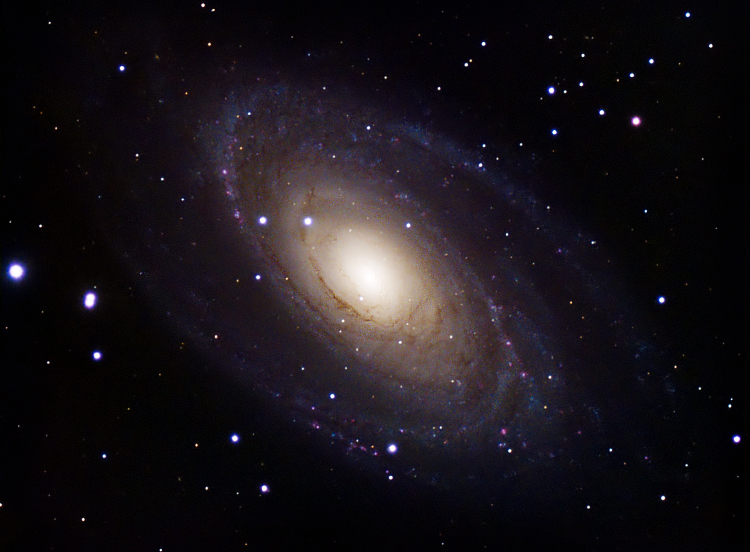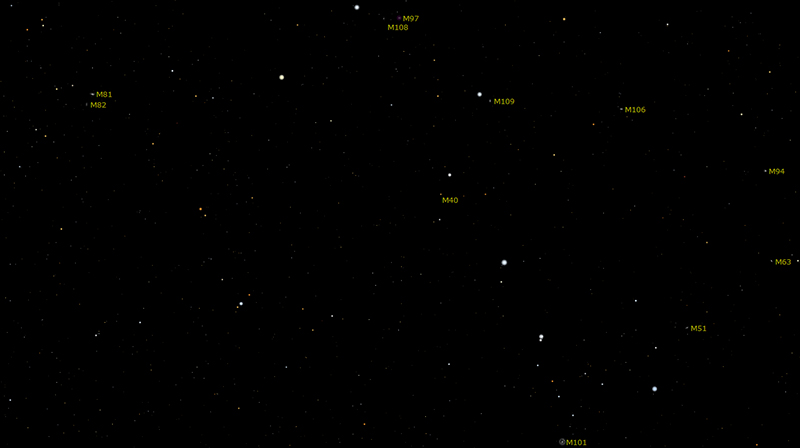Finding the Messier 81: Below is a binocular finder chart showing the location of the Messier objects in and around Ursa Major. If you click on the chart you will be taken to a printable negative image, with black stars on a white background.
First find the two pointer stars of the big dipper in your binoculars or finder and then use them to "star hop" to the galaxies. M81 is a little easier to see than M82. Of the Messier objects shown, the others easiest to see in binoculars are M51 and M101. All appear as faint colorless patches of light. You will want to search for them on a clear moonless night. You may want to use averted vision to help see them. In this case, you will be looking to one side of the galaxy's position (experiment) rather than looking directly at it. This brings the more sensitive "rod" cells of your eye into play. With finder telescopes you may just have to point the scope at the position of the galaxy, then check through the main scope. M40 is generally believed to be a mistake and is actually a faint double star. Tracking down the 110 Messier Objects can be a fun way to learn your way around the sky. We recommend taking your time doing this and savoring each object. A large telescope is not required - many of the objects can be seen with binoculars, some with the naked eye, and all can be seen with a 2" aperture telescope in dark skies. It's also fun to keep a log of the dates the objects were seen, the location, the instrument(s) , the weather, who you were with, the ease or difficulty of the sighting, and anything else you want to note. By the time you complete the list your finding and observing skills will be much sharper, and you will have some really nice memories of evenings under the stars. |
||||||||||||||||||||||||||||||||||||||||||||

